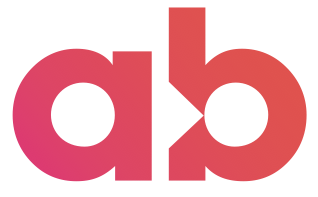Why developing an agile mindset is key to navigating conflict in the workplace
Leadership Blog

Written by Achieve Breakthrough

Conflict in the workplace is a thorn in the side of any would-be high-performing team. But like any other problem, the solution can be found by getting to the root cause.
First off, there is a difference between conflict and challenging each other because we're authentically committed to a good outcome. What separates conflict from the positive tussle ideas comes down to our willingness to truly challenge our own thinking as much as we are willing to challenge other people's.
A lot of conflict is based on our interpretation of facts and situations. It is these interpretations that drive our worldview and most conflicts arise when two differing views clash. Simply put, to avoid conflicts at work and beyond, we should have an agile mindset that is willing to question our own beliefs and interrogate our own views.
Loosening our grip on our own narrative
Beliefs are like concrete; they’re quick to set in and tough to budge. But as difficult and uncomfortable as it can be to give our belief system a shake up, it can give us the freedom to view situations through a broader, more outcome-focused lens.
When we take hold of a belief, we tend to interpret everything in a way that backs up our already existing view, often bending over backwards to support our preferred narrative. This is what happens in conflict. We refuse to see the other person’s point of view if it doesn’t tie in with our own narrow scope of what is true. Once our preferred truth is sealed in, it can be difficult to crowbar out.
Our ability to keep grounding our view within our own version of the truth is extremely powerful. As humans we are meaning-making machines. Our ability to invent meaning based on our preferred narrative, or turn our own interpretation into fact, is well-honed.
But if you can find evidence to support something, you can almost always find evidence against it. It’s just a case of wanting to find it. A high court judge doesn’t just hear one side of the story and make a decision based on that, they listen to the narrative as a whole. This is how we need to be with our own beliefs – open, flexible, and emotionally intelligent enough to interrogate our own interpretations and understand when our views may have previously been wrong.
Facts vs interpretation
There are, of course, objective truths. The sun rises in the east and a square has four sides. But these are hardly likely to be topics of debate in your next board meeting.
We need to scrutinize our subjective truths and the way we categorize these subjective interpretations of events as fact. The sooner we recognise that subjectivity, the sooner we can loosen our grip on our preferred view. It’s time to do away with the “my way or the highway” approach and start gifting ourselves with a broader perspective on things.
Once we stop seeing other people’s opinions as opposing facts and see them as equally valid views, we will listen more, learn more, and reduce conflict.
Challenging our own beliefs
The only thing standing in the way of achieving this is ourselves. It’s not always easy to challenge our own beliefs, it can feel like challenging our own identity. But if we have the strength and emotional intelligence to interrogate our own beliefs, we will reap the rewards of a wider viewpoint.
This is an ability that is highly undeveloped in most corporate environments, often leading companies to throw money at “speak up” culture – validating our interpretations instead of taking accountability for ourselves and being willing to admit that we are wrong.
This isn’t just an exercise into increasing empathy, though it certainly is that as well, it has the power to significantly reduce conflict and in turn propel productivity. All we need to do is tune into human nature, stop shouting into the echo chamber, and start learning from others.
Looking to create an impossible future? Get in touch to explore how we can help you ignite your ambitions.
Published 17/12/2024
Subscribe by Email
Achieve more breakthroughs. Get expert leadership ideas, insights and advice straight to your inbox every Saturday, as well as the occasional bit of news on us, such as offers and invitations to participate in things like events, webinars and surveys. Read. Lead. Breakthrough.
Related posts
Leadership Blog
Why organisational agility starts with mindset, not operating models
Achieve Breakthrough | 17/02/2026
Leadership Blog
Curiosity as culture: The social glue of high-performing teams
Achieve Breakthrough | 10/02/2026
Leadership Blog
Why better questions build better teams: The cultural case for curiosity
Achieve Breakthrough | 03/02/2026
Leadership Blog
Leading with the handbrake off: Why curiosity is a strategic operating system for uncertainty
Achieve Breakthrough | 27/01/2026
